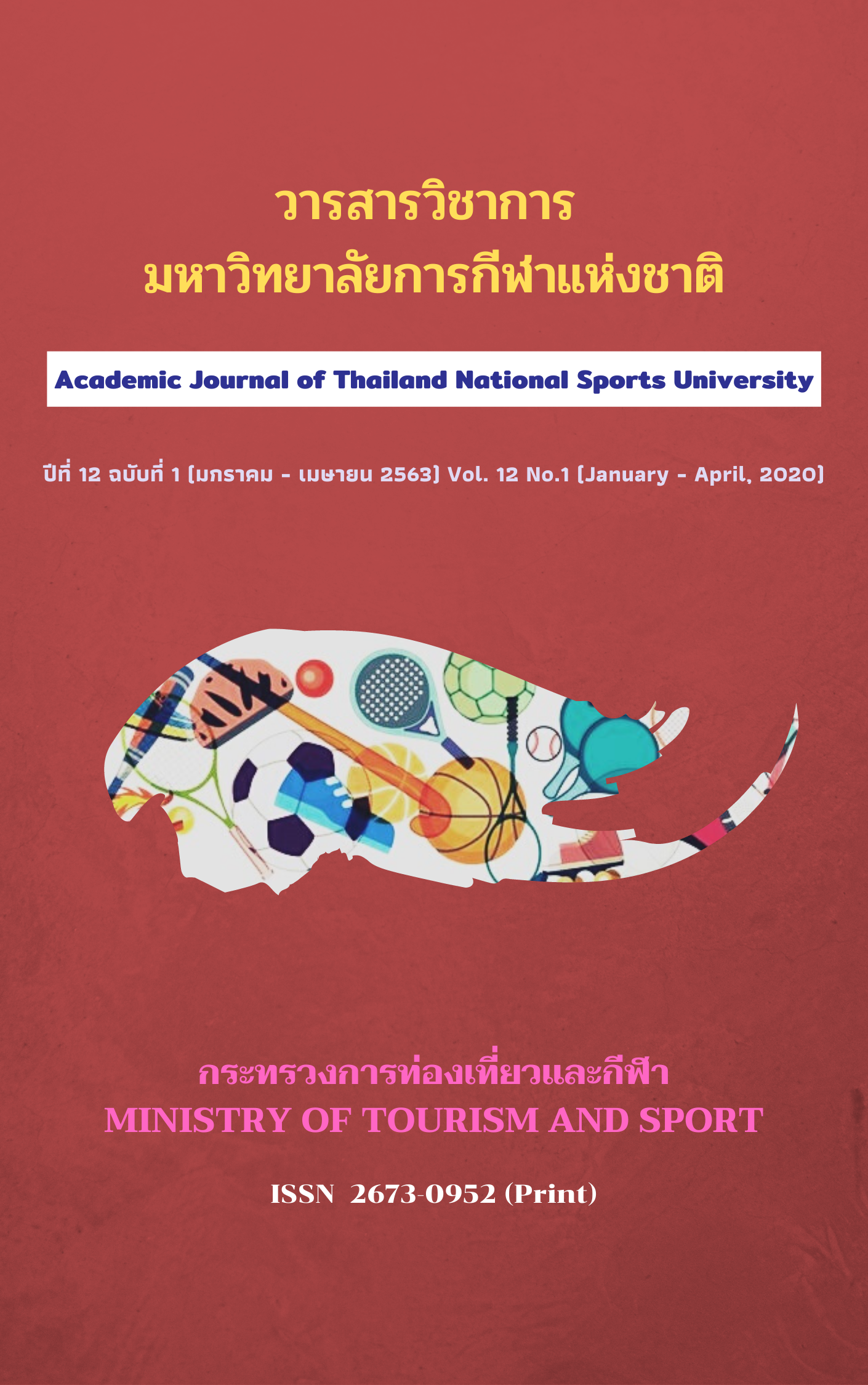THE EFFECTS OF COLD WATER IMMERSION ON BODY RECOVERY IN RELATION TO LACTIC ACID AFTER THE TRAINING OF UNDER-16-YEAR THAILAND WOMEN’S NATIONAL FOOTBALL TEAM
Main Article Content
Abstract
The purposes of this research were 1) to study the effects of cold water immersion on body recovery, and 2) to compare between the effects of cold water immersion and the normal body recovery of under-16-year Thailand women's national football team by considering the difference of lactic acid level in blood between the normal recovery and the cold water immersion. The results were analyzed in the form of mean scores of lactic acid level of the normal recovery and the cold water immersion. The researcher also applied Pairs-Sample t-test with the statistical significance at the level of .01 The results showed that the mean scores of lactic acid level of samples between before and after the normal recovery for 15 minutes and before and after cold water immersion recovery for 15 minutes were different with the statistical significance at the level of .01 The mean scores of lactic acid level of samples between after the normal recovery for 15 minutes and the cold water immersion recovery for 15 minutes were different with the statistical significance at the level of .01 In addition, the 15-minute cold water immersion recovery was more effective than 15 minute normal recovery for training football players.
Article Details
The published article is a copyright of the Academic Journal of Thailand National Sports University. The passage appeared in each article in this academic journal is a perspective of each author which is not related to the journal. Each author is required to be responsible for all components of his/her own article. If there are any mistakes, each author must be responsible for those mistakes on his/her own.
References
Ascensão, A.; et al. (2011). Effects of cold water immersion on the recovery of physical performance and muscle damage following a one-off soccer match. Journal of Sports Sciences, 29(3), 217-225.
Bruce. (2000). The role of skeletal muscle in lactate exchange during exercise. Medicine & Science in Sport & Exercise, 32(4), 753-755.
Chusak Vejbaesya and Kanya Palavivat. (1993). Physiology of Exercise. Bangkok: Thaiwattanapanich.
Issariya Thongho. (2016). Effect of recovery after exercise methods on lactic acid in the blood, heart rate and anaerobic performance in athletes. (Master’s thesis). Burapha University.
Jedsada Triphoem. (2011). The effect of cold treatment on recovery of Thai amateur boxers. (Master’s thesis). Srinakharinwirot University.
Jitrada Phongkularb (2009). Effects of central and peripheral body cooling after exercise on blood Lactate level in male taekwondo players. (Master’s thesis). Kasetsart University.
Vaile, J.; et al. (2008). Effect of cold water immersion on repeat cycling performance and thermoregulation in the heat. Journal of Sports Science, 26(5), 431-440.
Wilcock, I. (2006). The effect of water immersion, active recovery and passive recovery on repeated bouts of explosive exercise and blood plasma. (Master’s thesis). Auckland University of Technology.
Witthaya Laohakul. (2016). Manual of Best Practices. Bangkok: Patouch Co., Ltd.
Worrawit Rattanasateankij. (2009). Effect of cold water immersion on recovery and performance. (Master’s thesis). Srinakharinwirot University.


